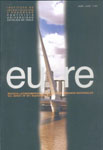Pespectives on economic localized development
DOI:
https://doi.org/10.4067/S0250-71612002008400003Keywords:
regional and local development, urban economy, economic geography, globalizationAbstract
The growing mobility of production and production factors could have contributed to a polarization reversal. However, it appears that economic development is increasingly localized in economic agglomerations. Globalization is a localized phenomenon. The purpose of this article is to review three partially overlapping perspectives on local economic development. These three perspectives broadly correspond to three factors enhancing the localized nature of economic development, namely externalities, learning and governance. Externalities are well-known phenomena associated with agglomeration. New is the fact that they constitute a source of increasing returns. This new school of geographical economics will be reviewed. At the same time a new economic geography emerged on the basis of clusters and industrial districts. Externalities are extended and change form. Dynamics of local economic development can be analizes from the perspective of evolutionary economic thinking. Learning in general and collective learning in particular are central concepts, not only at the level of firms but also at the level of territorial institutions. Learning increases and renews local competencies for economic policy. The growing complexity of relations between firms and between firms and territorial agencies is an important potential source of synergy and external economies but require new forms of governance at the level of industry and territory.Downloads
Published
How to Cite
Issue
Section
License
Copyright (c) 2002 Revista EURE - Revista de Estudios Urbano Regionales

This work is licensed under a Creative Commons Attribution 4.0 International License.
Al momento de aceptar la publicación de sus artículos, los autores deberán formalizar la cesión de derechos de autor a EURE, según las condiciones establecidas por la Revista.
Ésta establece que el autor autoriza a EURE de manera gratuita, exclusiva e ilimitada a reproducir, editar, publicar, distribuir, publicitar, comercializar y traducir el artículo, a cualquier soporte conocido o por conocer y desarrollar.
Del mismo modo, los autores aseguran que el artículo propuesto es original, no publicado y no propuesto para tal fin a otro medio de difusión.


